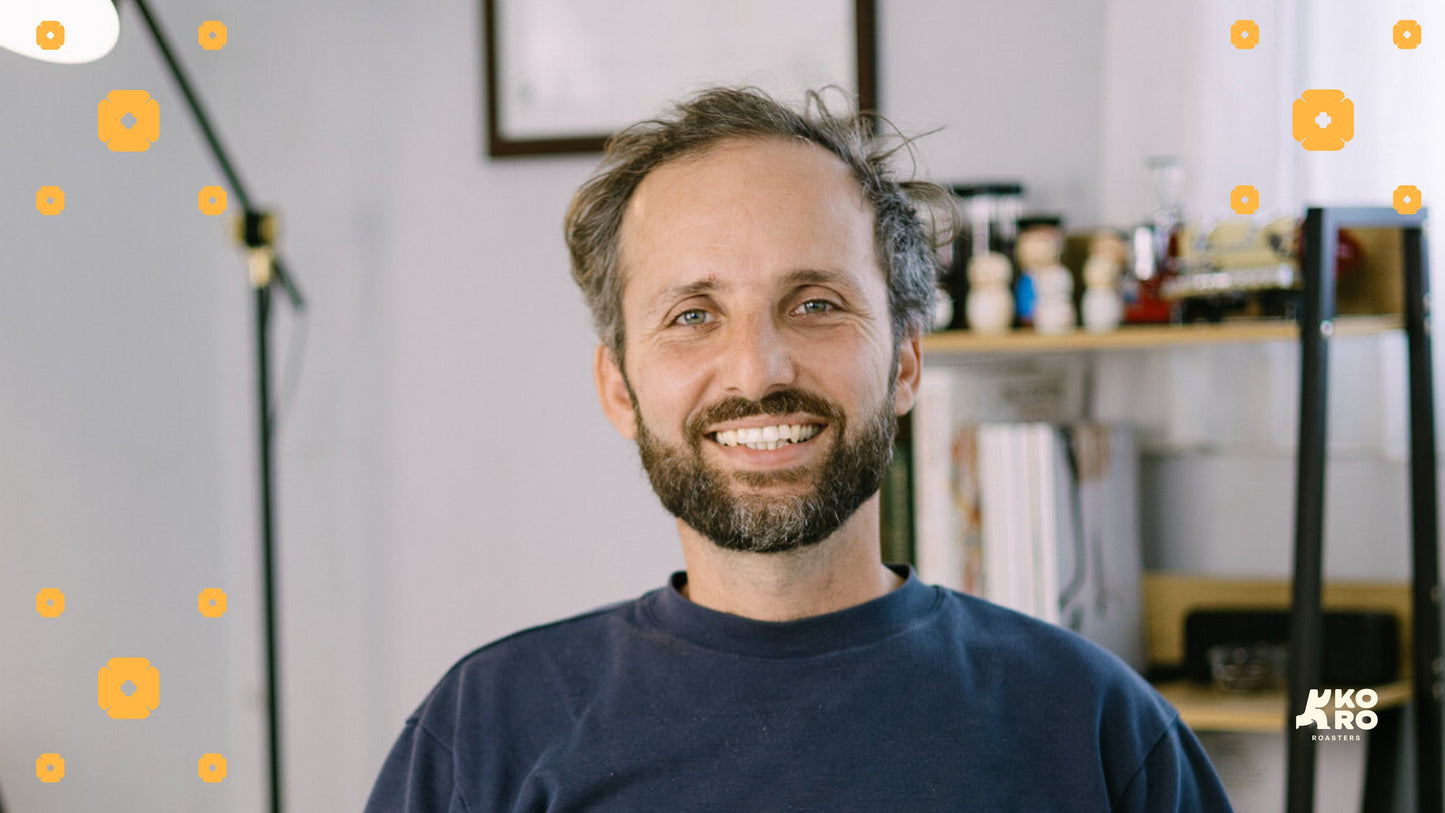Alain Scialoja, founder of Koro Roasters, opens up about his journey from building robots to roasting Indonesian coffee and why Indonesia is leading the specialty coffee revolution.
Ten years ago, I was hosting back-to-back online meetings, building tech products that impressed corporate boards but never touched real lives. Today, I'm sitting cross-legged on woven mats with farmers in Indonesia, creating something that brings joy to people's mornings worldwide - and discovering that Indonesia isn't just growing great coffee, it's growing the future of coffee itself.
This isn't just another tech-to-passion career pivot story. It's about recognizing that the most advanced coffee culture in the world isn't in Melbourne's laneways or Berlin's third-wave cafés. It's happening right here in Indonesia, where farmers and roasters sit at the same table, creating a feedback loop that's revolutionizing what specialty coffee can be.
The Italian Village Kid Who Thought He Knew Coffee
I grew up in a small Italian village where espresso wasn't just a drink - it was punctuation. Morning mokapot with nonna, after-lunch shot with family, afternoon break with friends. Coffee was ritual, community, identity. I thought I knew everything about coffee because, well, I was Italian.
 Siena, Alain's hometown
Siena, Alain's hometown
Looking back, that confidence was adorably naive. But it gave me something valuable: respect for coffee as culture, not just as a commodity.
The Corporate Years: When Coffee Became My Fuel
My first job out of university took me to Brussels, building enterprise software in sterile offices with terrible instant coffee. That's when my real coffee education began - not in cafés, but in my tiny apartment kitchen, perfecting espresso with my trusty mokapot that I'd packed from home.
Those coffee-fueled long nights debugging code taught me something: good coffee makes everything better. I started my home brewing journey seriously, investing in proper equipment, learning about extraction. My colleagues thought I was obsessed. They weren't wrong.
When work took me to Melbourne, everything changed. My first long black at Seven Seeds shattered my Italian coffee certainties. Wait, coffee could taste like berries? Espresso didn't have to be bitter? I became that friend dragging everyone to Market Lane and Duke's Coffee, evangelizing about extraction times and origin characteristics.
Melbourne also birthed my remote work life. While building my digital nomad career, I was discovering that coffee could be craft, not just tradition. The two journeys seemed separate then. They weren't.
The Precision Years: Stockholm & Berlin
Running a tech startup in Stockholm doing Mobility intelligence for smart cities, I discovered Nordic coffee culture at Drop Coffee and other legendary roasters. Sweden taught me something crucial: precision matters, but so does pause. The Swedish approach to fika ( the traditional afternoon coffee break) - where coffee isn't rushed but measured, considered, perfected - showed me coffee could be both scientific and soulful.
 Infarm vertical farms in Berlin
Infarm vertical farms in BerlinBut it was Berlin where everything clicked. When I joined Infarm as employee number two, we were four people with a crazy vision: locally grown produce everywhere, in all seasons. We wanted to build farming units growing fresh herbs, salads, and microgreens directly in grocery stores across countries with long winters.
 Instore farms
Instore farms
What we built was beautiful and revolutionary. Fully automated vertical farms using our own "farming brain" hardware, software platforms with AI-driven nutrient recipes that self-adjusted, monitor, and improve continuously. We created robotic farms that people could interact with - I'd see photos on social media of customers harvesting their own basil, excited to know exactly where their food came from, with full traceability.
Watching Infarm scale from 4 to hundreds of employees, securing what became Europe's largest agritech investment round, was thrilling. But what really hooked me was the human element. Our international team would have tastings, cooking together with ingredients we grew, sharing recipes and stories from our different cultures. I loved food, loved cooking, loved the idea that technology could make fresh, local produce accessible everywhere.
 Lunch at Infarm
Lunch at Infarm
The most fascinating challenge was bringing together biology, agriculture, operations, and technology - getting feedback from people with completely different backgrounds and building something useful for everyone. We were using data-driven approaches to improve food production almost a decade ago, showing how technology could increase yields and quality in agriculture.
For the first time in tech, I could literally taste my work.
Between building hydroponic systems, I'd escape to Five Elephant or The Barn, Berlin's specialty coffee temples. The coffee was exceptional, but I started wondering: where were the stories? Who grew these beans? What did they dream for their harvest?
The Wanderer: Coffee as Universal Language
My passport is filled with stamps from Nepal, India, Iran, Lebanon, across South America and more. Remote work enabled travelling and travelling allowed coffee exploration across cultures. In each place, I'd seek out coffee - from the traditional “qahwa” in Beirut to brewing on the Peruvian mountains.
 Alain Scialoja in Macchu Picchu, Peru
Alain Scialoja in Macchu Picchu, Peru
Coffee is a universal language. Whether sharing tea ceremonies in Nepal or espresso rituals in Buenos Aires, I found coffee traditions everywhere, each reflecting local culture and values. These origin visits deepened my fascination: coffee connected people across continents, but somehow the farmers who grew it remained invisible to those who loved it.
Indonesia: Where Everything Converged
I came to Indonesia for what I thought would be another stop on my nomadic journey. Then I visited farms in Flores and Java, participated in workshops on quality control and cupping, studied the economics of coffee from the ground up.
 Cherry selection in Flores
Cherry selection in Flores
Picture this: sitting in a circle with farmers after a long day cupping samples, the afternoon sun filtering through the window. Instead of the one-way "education" I'd witnessed elsewhere, these farmers were teaching me. They explained their experimental processing methods - anaerobic fermentation, unique drying techniques, innovations I never heard even in Berlin's most progressive cafés. These were innovators, experimenters, artists.
And then it hit me: Indonesia had what Melbourne, Stockholm, and Berlin were missing - the complete circle. Producers and consumers weren't separated by continents and middlemen. They were literally at the same table, sharing knowledge, improving together.
My Infarm experience suddenly made perfect sense. I'd learned how data-driven approaches could improve agriculture and increase yields - exactly what Indonesian coffee production needed most. The technology skills I'd developed could serve a purpose that mattered.
Finding Home (and Love)
Indonesia gave me more than a coffee revelation. I found love here - my wife, who understood both my tech background and my growing coffee obsession. Suddenly, the nomadic life that had defined me for years felt less appealing than building something rooted, something that mattered.
 Alain Scialoja and his wife in Jakarta
Alain Scialoja and his wife in Jakarta
The desire to create rather than just consume, to be part of a community rather than just observe it, grew stronger. Every cupping session, every farm visit, every conversation with passionate coffee people here convinced me: this is where coffee's future is being written.
Why Indonesian Coffee is Different
Here's what the specialty coffee capitals don't tell you: they're still playing catch-up to what's happening in Indonesia. While Melbourne perfects its flat whites and Berlin debates extraction theories, Indonesian farmers are revolutionizing processing at the source.
Indonesia isn't following global coffee trends - it's setting them. Look at the evidence: Indonesian baristas winning the World Barista Championship, ranking high in World Brewers Cup, hosting World of Coffee 2025. The innovation happening here, fro wet-hulling techniques to Cup of Excellence winners, shows Indonesia leading, not following.
 Public cupping at Koro Roasters
Public cupping at Koro Roasters
The feedback loop here is immediate and electric. A farmer experiments with a new fermentation technique. Two weeks later, we're roasting samples together, cupping, discussing. The farmer adjusts based on our feedback; we adjust our roasting based on theirs. This isn't supply chain - it's collaboration.
The Birth of Koro
All those years building systems, analyzing data, creating platforms - they weren't wasted. They were preparing. At Koro, we use data-driven quality control not to replace tradition but to amplify it. We track what matters - moisture, development, consistency - because it helps us translate each farmer's vision into your cup.
 Technology is central at Koro Roasters
Technology is central at Koro RoastersWhen I sit with farmers now, sharing roasting data and cupping notes, I see the same excitement I felt when our Infarm systems finally worked perfectly. Except this time, the output isn't produced in a grocery store. It's coffee that makes people pause their morning rush, close their eyes, and smile.
The Real Innovation
This collaborative approach is creating something unprecedented. Every bag of Koro Roasters coffee carries this story: Italian heritage meets Melbourne's coffee education, Stockholm's style, Berlin's innovation, and Indonesia's revolutionary collaborative spirit. But most importantly, it carries the vision of Indonesian farmers who aren't just growing coffee - they're growing the future of coffee.
The tech world talks endlessly about disruption. Indonesian coffee is quietly doing it, one bean at a time. And I'm honored to be part of this story, translating innovation into every roast.
What's Coming Next
We're not stopping here. Something big is coming - a "Made in Indonesia" innovation that will surprise the coffee world. We're developing technology that will help roasters and farmers collaborate even more effectively, sharing data and insights in real-time. Indonesia isn't just producing great coffee; it's producing the tools to make all coffee better.
This is Indonesia's moment. The world is finally recognizing what we've known all along - that the most advanced coffee culture isn't in the West. It's right here, where tradition meets innovation, where farmers and roasters work as partners, where every cup tells a story of collaboration.
And it tastes incredible.

